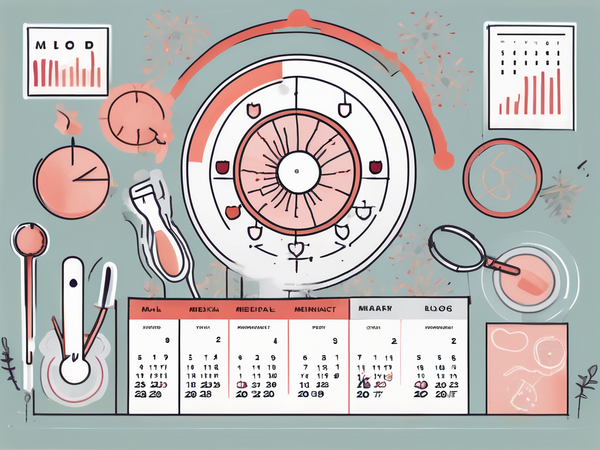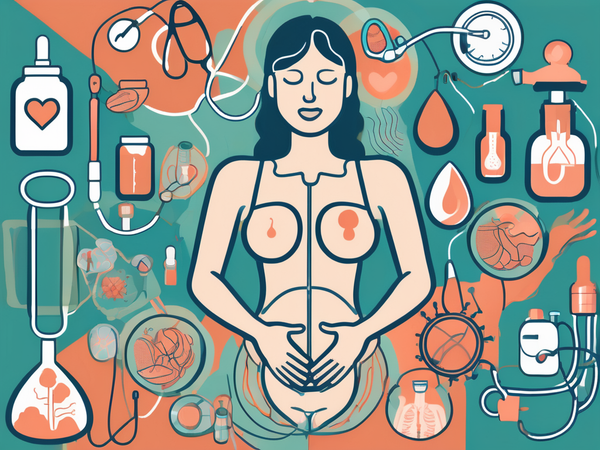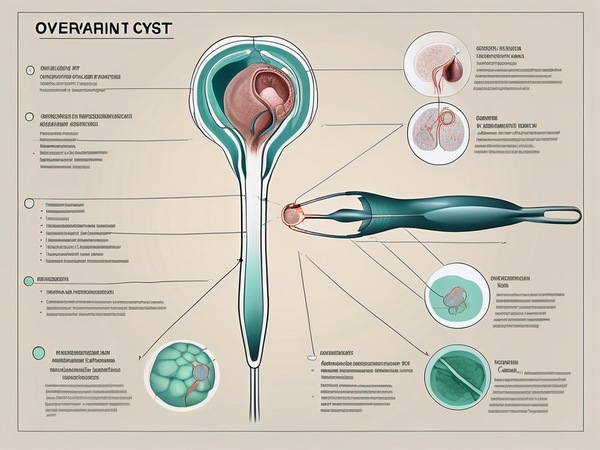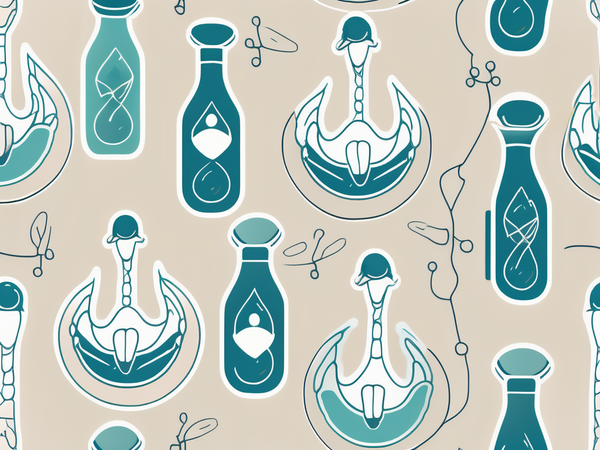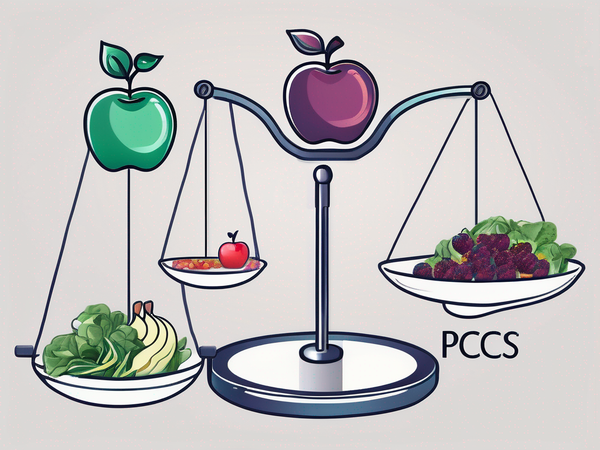Pregnancy is a critical phase and no less than an accomplishment for a woman. For a mother, taking care of herself as well as the baby can be quite an overwhelming experience.
After all, she has to always make the right decisions when it comes to her baby’s overall health and wellbeing, whilst taking care of herself. Pregnancy is the time in a woman’s life when her food habits have a direct impact on her child. Perhaps that’s why, nutrition plays such a vital role before, during, and after pregnancy.
During pregnancy, a mother has to be more vigilant and cautious about her prenatal care, and rightly so. After all, understanding from the beginning what works best for her as well as her child at every stage will ensure a healthy and safe pregnancy.
Healthy eating during one’s pregnancy also sets the stage for a child’s overall growth and development post-birth. Needless to say, nutrition matters a lot during those nine months. So what should a mother consume during and after pregnancy? What are the foods that should be avoided?
What are the essential nutrients that need to be consumed when she’s expecting? And are there any myths that need to be busted? Well, all that and more shall be revealed as you read along. So let’s get started, shall we?
What Foods Must Be Consumed During Pregnancy?
As we have already established, consuming a wholesome nutritious diet during the nine months of pregnancy can be one of the greatest gifts a mother can give to her developing baby. However, food alone can’t ensure optimum nutrition for both the mother and child during this period.
Morning sickness, excessive nausea, and vomiting can add to the challenge of meeting the daily nutrient requirements. A mother also needs to take prenatal vitamins to help plug in the nutritional gaps in her diet, if any, whilst providing the baby with adequate nutrients to support its growth.
A balance of nutritious foods and prenatal vitamins will help mothers feel healthy during their pregnancy, paving the way for an easier delivery devoid of any complications. Furthermore, it can also help establish essential building blocks of growth and health for their children.
Failing to provide the necessary nutrients to the unborn child could put them at the risk of developing health risks such as anaemia and neural tube birth effects that hamper a baby's overall health. So if you want to know what foods must be consumed during pregnancy, you’re at the right place.
During pregnancy, mothers need to take an additional of approximately 300 calories each day. These calories should come from a balanced diet of protein, fruits, vegetables and whole grains to provide all the essential nutrients.This means planning your meals in the following way:
-
Consume complex carbs like sweet potatoes, oatmeal, whole wheat pasta, chapatis and fortified cereals. These foods are rich in B vitamins, dietary fibre, iron and play a vital role in providing you with energy without spiking blood sugar levels. In such cases, go for whole grains that take longer to digest and keep you satiated for long.
-
Micronutrients : Consume more of fresh fruits and vegetables as they are rich in essential vitamins like vitamin C, minerals like iron, antioxidants, polyphenols and dietary fibre that help offset oxidative stress, improve digestion, maintain pH levels in the body, regulate blood sugar levels, and also contribute in the healthy growth of the baby. You can have them throughout the day in regular intervals. Vegetables feature as an essential part of your main meals as well.
-
Calcium : This mineral is vital to build a baby's bones and teeth. If a pregnant woman does not consume enough calcium, the mineral will be drawn from the mother's stores in her bones and given to the baby to meet the extra demands of pregnancy. Consume at least three portions of protein rich foods like milk and dairy products every day such as a bowl of yogurt, a glass of buttermilk, or milk by dividing it throughout the day. Milk and milk sources are rich in protein and calcium, which are necessary for the healthy growth, development, and wellbeing of the mother and child.Green leafy vegetables also are good sources of calcium.
-
Protein and healthy fats : Protein is "a builder nutrient," as it helps to build important organs for the baby, such as the brain and heart. Consume two-three portions of either eggs, meat, legumes, pulses, lentils, beans or any other non-dairy variety of protein. One can also consume two portions of lean fish and a portion of oily fish during the week. All these foods are rich sources of iron, omega-3 fatty acids, healthy fats and protein, which play a vital role in the development of the healthy heart, brain, and nervous system of the child, as well as the health and wellbeing of the mother.
This is how pregnancy nutrition looks like, which is not just about pregnancy-friendly foods that must be consumed but also about the foods that must be avoided at all cost. Let’s take a look at them below.
What Are Some Of The Foods That Must Be Avoided?
Foods that must be avoided during pregnancy include :
-
Processed foods
-
High sugar and fatty foods
-
Alcohol
-
Certain fishes like monkfish, anchovies, swordfish, and the like as there could be high levels of mercury in them, which could be harmful for the baby.
-
Unpasteurised milk
-
Raw and uncooked foods such as eggs. Avoid foods that contain raw eggs as well such as mayonnaise.
-
Animal liver and liver products such as sausages as they can contain high levels of vitamin A, which like any other fat soluble vitamin can be toxic when taken in excess.
-
Certain kinds of cheeses such as mould-ripened cheese, which could contain harmful bacteria that may have the potential to harm the foetus.
What Are The Essential Prenatal Vitamins That Must Be Consumed During Pregnancy?
Prenatal vitamins are multivitamins and supplements containing essential vitamins and minerals that are imperative for pregnant women to meet the increased nutrient requirements.
These are particularly formulated for the healthy development of the foetus. Women can begin taking prenatal vitamins before they conceive or during pregnancy. These prenatal vitamins are available in the form of pills, liquid, capsules or gummies.
Please note that these vitamins are not confused as a substitute to a healthy diet. During pregnancy, all the essential nutrients and minerals go to the baby through the food that the mother consumes. So, a healthy diet is a must at all times. Prenatal vitamins ensure there are adequate nutrients in your body all the time and need to be taken alongside a healthy diet.
Now, let us discuss the five most important vitamins to take during pregnancy.
-
Iron: Women require to consume iron to make haemoglobin for both themselves as well as the baby. After all, it plays a vital role in transporting oxygen from one’s lungs to the rest of the body. It also transports oxygen to the developing embryo through the placenta. Iron deficiency is likely to lead to the risk of anemia, which is caused due to red blood cells & low haemoglobin levels, which could lead to the symptoms of dizziness, weakness, and lethargy. Anemia during pregnancy can also lead to an increased risk of premature birth of the baby and low birth weight, both of which are not ideal.
-
Vitamin C: This nutrient plays an instrumental role right from bolstering the immune system to contributing to the birth weight of the baby. It is a water-soluble vitamin that requires to be consumed daily as the body can’t store it. Vitamin C is beneficial for tissue repair, bone growth, and wound healing. However, you must consume the right amount of vitamin C you need every day during pregnancy as per your age and doctor’s recommendation.
-
Vitamin D and Calcium: Calcium is vital for the development of baby’s bones and teeth. Taking calcium during pregnancy can prevent a new mother from losing her own bone density as the foetus uses the mineral for bone growth.Vitamin D is an essential prenatal vitamin as it helps absorb calcium and contributes to the baby’s bones, heart, kidney, and teeth development
-
Vitamin E: This fat-soluble vitamin is important during pregnancy since it protects the cells and prevents your developing baby from free radical activity in the body. It also helps form red blood cells (RBC) and strengthens one’s immune system to fight against viruses and bacteria and protect the body from any potential infections. Additionally. vitamin E helps enhance blood circulation in pregnant women. The improvement in the mother’s blood flow also increases the circulation in the placenta. That means that the baby is in a conducive and healthy environment with enough oxygen.
-
Docosahexaenoic acid (DHA): This is an omega-3 fatty acid, which plays a crucial role in every cell in your body. DHA during pregnancy helps support and develop cognition, vision development, and neural development of the baby.
-
Folic Acid: This nutrient is very crucial for the development of the baby as well as the health of the mother. One should start consuming 400mg of this supplement from the time a woman decides to have a baby until the 12th week of her pregnancy in order to lower or prevent the risk of the baby being born with neural tube abnormalities such as a deformed spine, for instance.
Your Ideal Prenatal Capsules
Pregnancy can get too tiring for a woman. After all, her body has to adapt to so many changes, tackle food cravings and morning sickness, and meet the increasing nutritional needs for both the baby and her.
During these chaotic nine months, it can be quite challenging to take multiple medications one after another or understand what foods to consume in what proportion ensure adequate nutrition. That is when Slow Prenatal Capsules come into the picture.
Prenatal capsules are made using powerful nutriscience with fast-absorbing Vegan omega-3 with DHA from algal oil, and delayed-release plant-based multivitamin beadlets with important vitamins like B-complex, Iron, and Vitamin E in precise dosage.
Each capsule contains ingredients that are easy to digest and is enhanced with mint to tackle the nausea, morning sickness and medicinal aftertaste or burps. What’s more is that Slow Prenatal capsules are allergen-free, clinically proven, and ensure safe dosage. You can take these supplements with your meal daily for maternal and foetal health support.
Wellbeing Nutrition also has Postnantal Slow Capsules. As much as prenatal vitamins are essential, one must resort to supplements to meet their nutritional requirements during the postpartum period as well. Postpartum period, and motherhood in general, are also quite physically demanding, which require higher energy support.
During this phase, the nutrient requirements for the mother increases. She needs additional nutrition to support her energy demands as nursing a baby and following a diet alone cannot fulfil them.
Postnatal multivitamins are vital to fill the nutritional gaps, support hormonal changes or the sleep-wake rhythm shifts that often happen when you have a newborn. If you are looking for complete nutritional support, Slow Postnatal is ideal for lactating mothers to fulfil the increased nutrient demands for 6 months postpartum & throughout lactation.
It provides 100% RDA of iron, B-complex, vitamin D, aid in energy production and recovery for the mother & provide quality nutrition for the breastfed infant. While that’s another topic to tackle, women who are expecting a baby or are planning a pregnancy, can read our blog, What Makes Wellbeing Nutrition's Slow PostNatal Stand Out From The Crowd? , to know more about the product.
References:
-
Pannia E, Cho CE, Kubant R, Sánchez-Hernández D, Huot PS, Harvey Anderson G. Role of maternal vitamins in programming health and chronic disease. Nutr Rev. 2016 Mar;74(3):166-80. doi: 10.1093/nutrit/nuv103. Epub 2016 Feb 16. Erratum in: Nutr Rev. 2016 Dec;74(12 ):785. PMID: 26883881; PMCID: PMC4892288. https://www.ncbi.nlm.nih.gov/pmc/articles/PMC4892288/
-
Oh C, Keats EC, Bhutta ZA. Vitamin and Mineral Supplementation During Pregnancy on Maternal, Birth, Child Health and Development Outcomes in Low- and Middle-Income Countries: A Systematic Review and Meta-Analysis. Nutrients. 2020 Feb 14;12(2):491. doi: 10.3390/nu12020491. PMID: 32075071; PMCID: PMC7071347. https://www.ncbi.nlm.nih.gov/pmc/articles/PMC7071347/
-
Jang W, Kim H, Lee BE, Chang N. Maternal fruit and vegetable or vitamin C consumption during pregnancy is associated with fetal growth and infant growth up to 6 months: results from the Korean Mothers and Children's Environmental Health (MOCEH) cohort study. Nutr J. 2018 Nov 12;17(1):105. doi: 10.1186/s12937-018-0410-6. PMID: 30419900; PMCID: PMC6231254. https://www.ncbi.nlm.nih.gov/pmc/articles/PMC6231254/
-
Khazai N, Judd SE, Tangpricha V. Calcium and vitamin D: skeletal and extraskeletal health. Curr Rheumatol Rep. 2008 Apr;10(2):110-7. doi: 10.1007/s11926-008-0020-y. PMID: 18460265; PMCID: PMC2669834. https://www.ncbi.nlm.nih.gov/pmc/articles/PMC2669834.
-
Lee GY, Han SN. The Role of Vitamin E in Immunity. Nutrients. 2018 Nov 1;10(11):1614. doi: 10.3390/nu10111614. PMID: 30388871; PMCID: PMC6266234. https://www.ncbi.nlm.nih.gov/pmc/articles/PMC6266234/
-
Butterworth CE Jr, Bendich A. Folic acid and the prevention of birth defects. Annu Rev Nutr. 1996;16:73-97. doi: 10.1146/annurev.nu.16.070196.000445. PMID: 8839920. https://pubmed.ncbi.nlm.nih.gov/8839920/
















